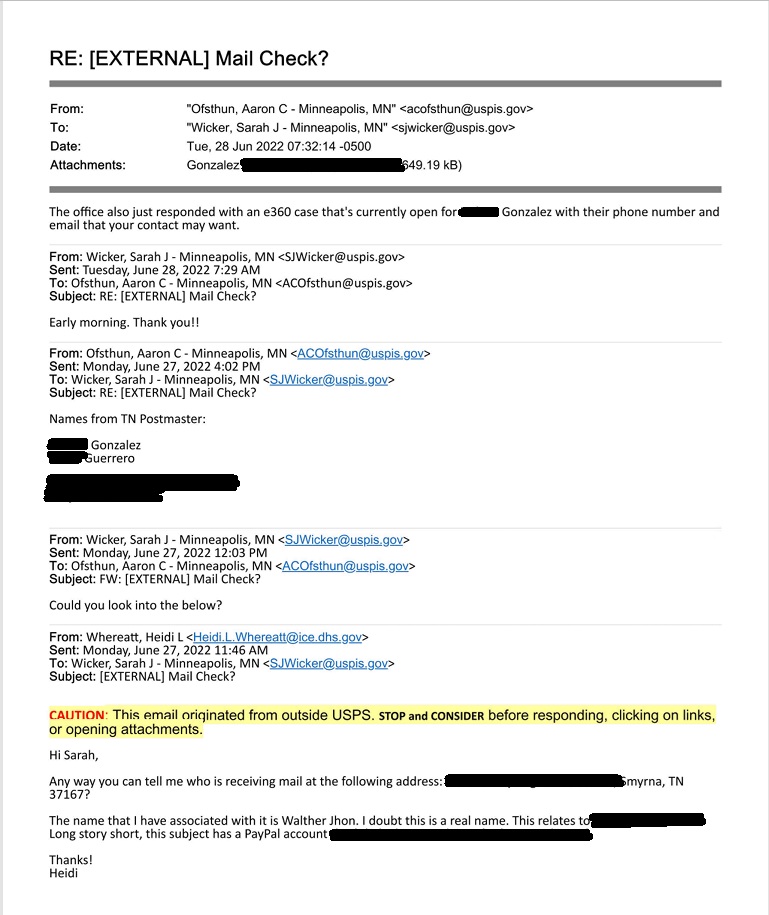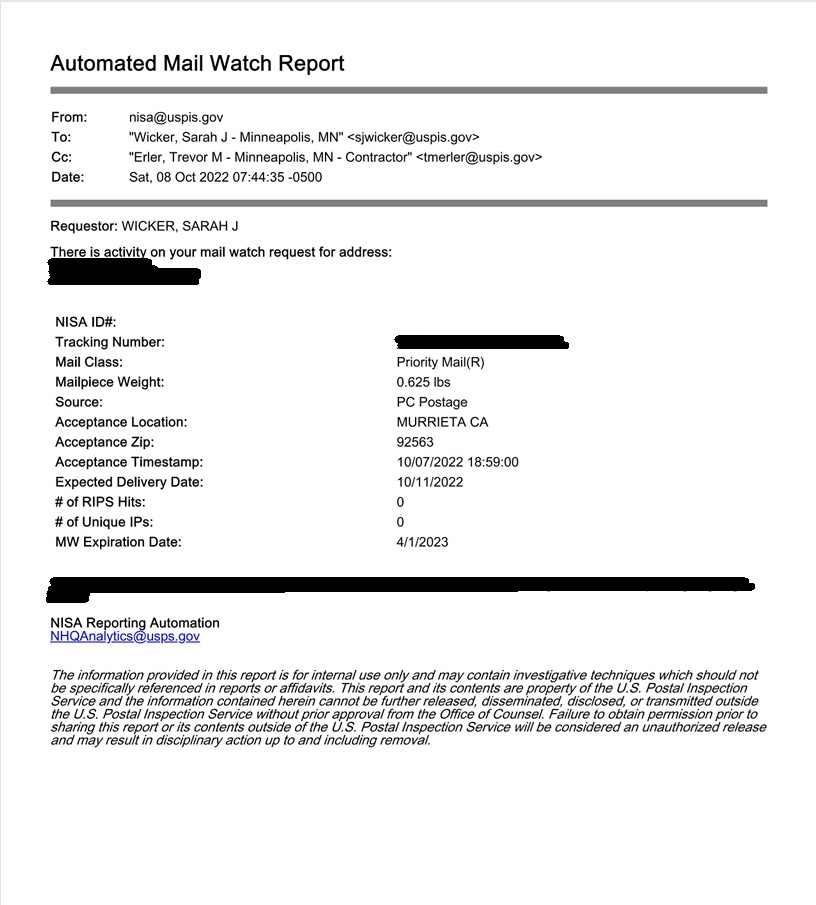Most people assume federal investigations begin with a tip, a warrant, or a judge’s approval. But internal documents from the U.S. Postal Inspection Service (USPIS) show a very different starting point: automated surveillance systems that operate entirely outside the courtroom.
USPS maintains internal analytics platforms capable of monitoring mail activity, correlating data points, and generating alerts tied to specific addresses, individuals, or cases. These systems do not require a warrant to operate — and, critically, their outputs are not designed to appear in court filings at all.


USPS shares intelligence with ICE, and its surveillance analytics are governed by policies instructing agents not to reference them in affidavits, meaning judges may never see the tools that initiated or shaped an investigation.
The documents above show two critical facts side by side. First, USPS intelligence is actively shared with Immigration and Customs Enforcement (ICE) as part of ongoing investigations. Second, USPS surveillance outputs — including automated mail watch reports — explicitly instruct agents that the information “should not be specifically referenced in reports or affidavits.”
In other words, the systems that initiate or materially influence investigations are deliberately kept upstream from judicial review. When cases later appear before a court, the narrative typically begins only after alternative investigative steps are constructed — steps that obscure how the investigation truly started.
This structure does not require agents to lie. Instead, it relies on compartmentalization: intelligence is separated from evidence, analytics are separated from affidavits, and judges are shown only the downstream version of events. The result is a legal process in which courts are asked to evaluate probable cause without visibility into the surveillance mechanisms that shaped the case.
Collaboration between federal agencies is not inherently improper. USPS, ICE, and other agencies are authorized to share intelligence. The concern arises when powerful surveillance tools operate in secrecy, shielded by internal policies that prevent their disclosure in judicial proceedings.
Transparency matters most at the beginning of an investigation — not the end. When courts are prevented from seeing how suspicion was generated, meaningful oversight becomes impossible. Whether one supports aggressive enforcement or not, no system should depend on judges remaining unaware of the tools used to bring cases before them.
These documents offer a rare look behind the curtain. They do not allege misconduct. They document a system — one that raises fundamental questions about how surveillance, intelligence, and judicial review interact in modern federal law enforcement.